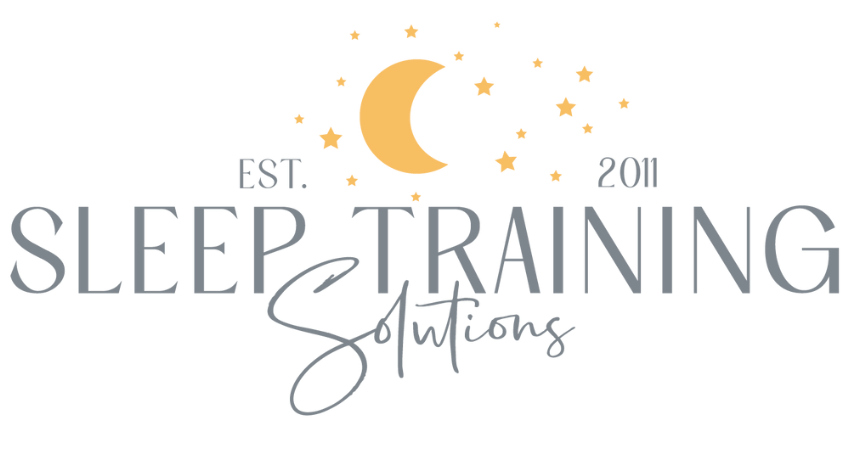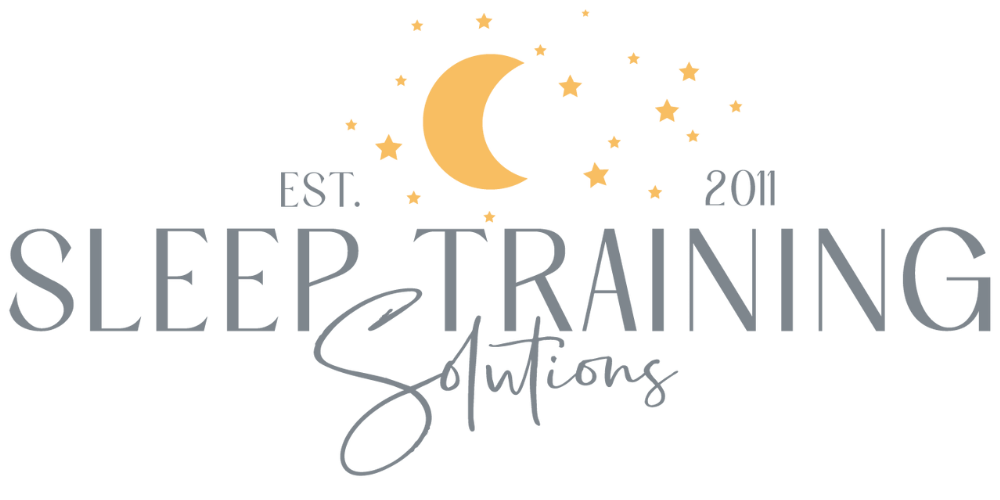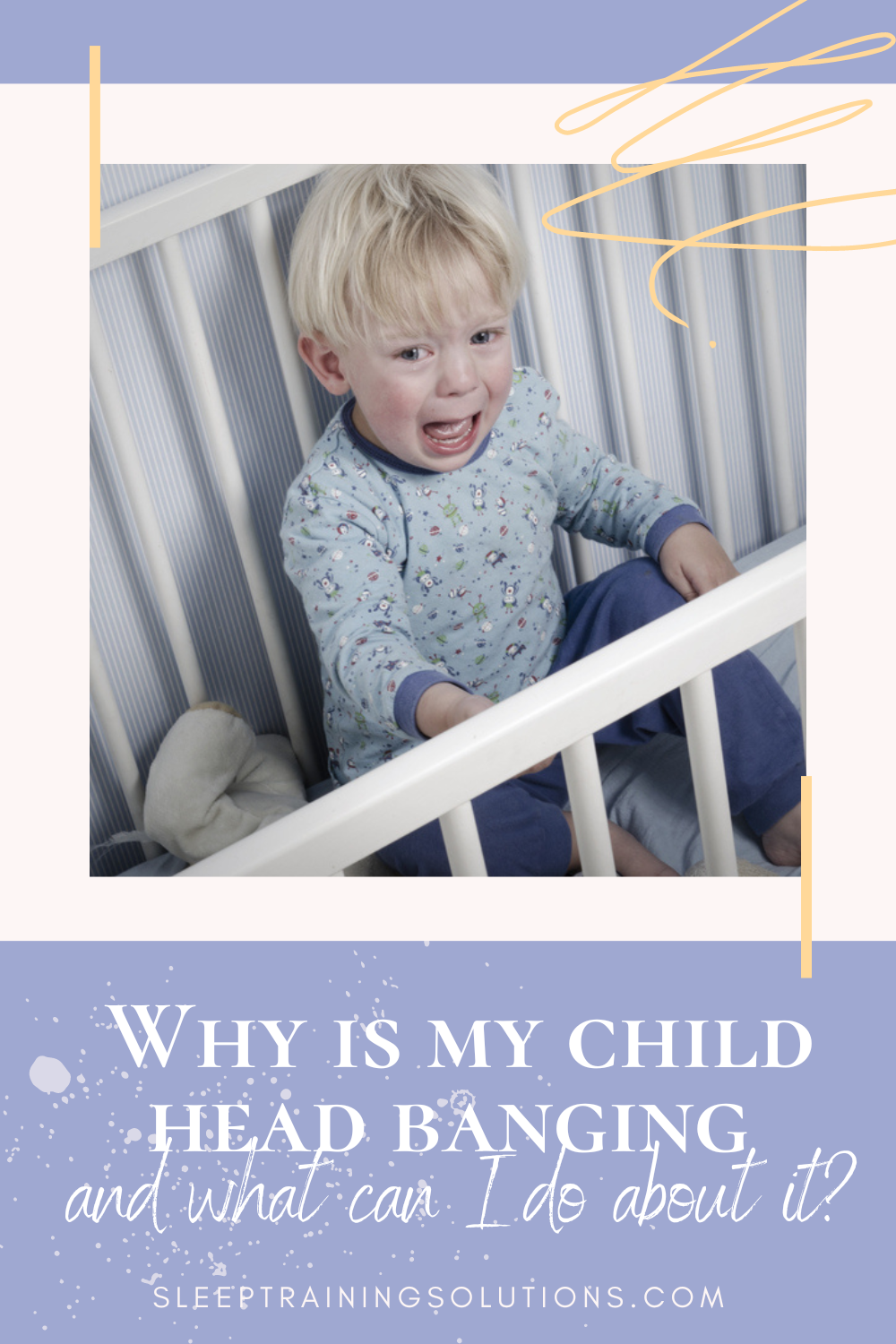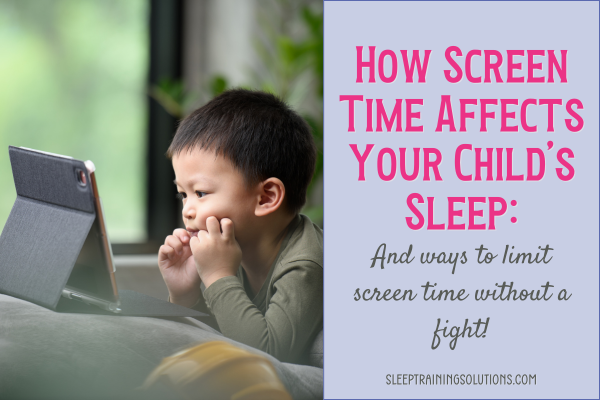Why is my child head banging and what can I do about it?
If you have a toddler, chances are you’ve witnessed the full body flailing that comes when they’re frustrated or enraged – over being told no, told it’s time to take a nap or even if you cut their grilled cheese sandwich in rectangles instead of triangles!
It always amazes me that the littlest things – in our minds – are the things that make them most upset!
Sometimes you can help avoid these situations (ie cutting a sandwich the “preferred” way) but some things are just not negotiable – like taking a nap or going to bed!
Maybe you have a child who stalls and makes a giant fuss walking up the stairs to bed, making it very clear as he steps into the bath that he’s annoyed you’re exercising your right as a parent to make him do something he’s not happy doing!
And then you do the rest of your bedtime routine – with or with your child’s cooperation! – and put him in the crib.
The whole process just wears. you. down.
Sound familiar?
If you’re battling at bedtime every night, chances are something needs to be changed – the timing of bedtime, the bedtime routine or even what’s happening immediately before the routine starts. And I suspect your child needs to work on his sleep skills too – when children don’t feel like they know how to fall asleep and they’re put into their cribs, they’ll throw a tantrum because they’re frustrated AND tired!
But there’s a particular behavior that I wanted to talk about today that I see more often than you’d think – headbanging.
This can be really disconcerting when your toddler repeatedly bangs her head against the wall or the sides of her crib or the floor—for no apparent reason at all.
According to Parents.com, as many as 20% of toddlers and children between the ages of 12 months and four years intentionally bang their heads. For some, this can last a few weeks and for others up to a few years, usually settling down by the age of three or four.
Why do they do it?
Comfort – You know how rocking in a rocking chair or falling asleep on a boat can be soothing? The back and forth rhythm can be calming and help you relax. Head banging has the same effect for some babies when they discover that the repeated motion helps them feel at ease. (I know, it’s hard to imagine something that looks like it would hurt could be comforting?!)
Anger or frustration – Young children don’t have the verbal skills they need to express the storm of emotions they go through, so banging can help them vent these feelings.
Pain – Some babies and toddlers bang their heads as a way to self-soothe when they have teething pain or earaches.
Attention – Older toddlers who realize that you find the head banging upsetting might do it to get your attention. The more you try to stop them, the more they will see it as something that can get a rise out of you.
In very rare cases, repeated head banging can be a sign of an underlying issue such as autism. If you notice other behavioral or developmental issues with your child, it’s always a good idea to get him checked out, especially if the head banging continues past the age of four.
So what should you do?
The first step is to make sure your child is safe and protect her from hurting herself. Children that head bang will generally not cause themselves harm; they will only bang hard enough to comfort themselves, not to cause actual pain or injury to themselves. Resist the urge to line the side of the bed or crib with pillows, as this is a suffocation risk. Remember that your child will not bang hard enough to cause himself pain.
Give her some extra attention when she’s not banging. This is always helpful for most attention-grabbing behaviors from kids. A few extra minutes playing Legos or sitting down to read books can go a long way to giving your child what she needs. Try not to get too upset or make too much of a fuss when she’s actually banging, because this will set up a negative reinforcement situation. Just make sure she’s safe and try to distract her if possible. If not, let the banging session run its course and carry on with your day.
Offer your child other solutions for soothing himself, such as cuddling and playing some calm music, giving him a warm bath, singing a song or telling a story.
Once your child develops the ability to speak and express himself more, he will most likely stop the head banging. Remember: we all have our ways of expressing anger, frustration and sadness. Head banging might seem like an alarming way to do it, but most of the time it’s safe and won’t cause any long term damage or trauma.
Related Posts:
This post is for informational purposes only and may not be the best fit for you, your child and/or your personal situation. It shall not be construed as medical advice. The information and education provided here is not intended or implied to supplement or replace professional medical treatment, advice, and/or diagnosis. Always check with your child’s physician or medical professional before trying or implementing any information read here.





